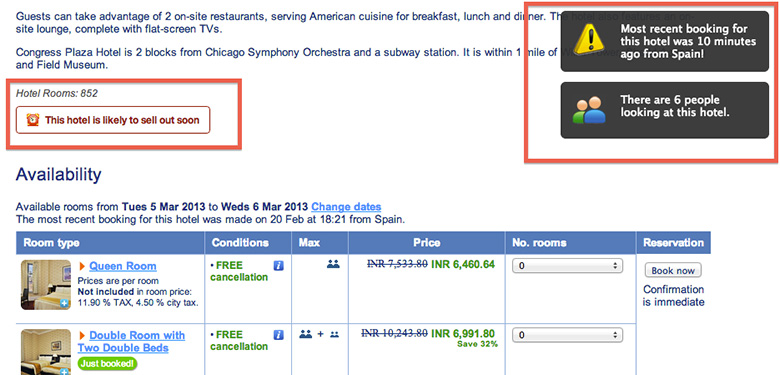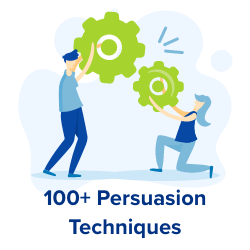Why Is Booking.com’s Conversion Rate So High?
Got a last minute business meeting over the other side of the country? — You need a hotel and you need it quick. What do you do? Many of us would head over to the Booking.com website. For those of you who may not know, it is an online booking website that features over 1 million properties globally. That’s all well and good, but why is the Booking.com conversion rate sky high I hear you ask?
4 Key Principles Drive The Booking.com Conversion Rate
It’s all in the persuasion principles implemented by the company. These persuasion tactics are based on the neuroscience principles, often referred to as ‘cognitive biases’. To put it simply, these cognitive biases are defined as the tendency to think in a certain way that deviates from logical or rational thinking, hence they can cause us to make some very questionable decisions and draw erroneous conclusions!
1. Cognitive Ease:
What is it?
Cognitive Ease is simply the ease with which our brain processes information; this level of ease impacts how positively we feel about something — to put it simply, the easier the better.

How has Booking.com implemented this principle?
When I start to type my destination into the search bar, it immediately generates relevant search suggestions — e.g. when typing “Lo…” it suggests the option of “London”. This lowers the amount of cognitive effort required- as no one wants to sit and type the entire word “London” — That’s too much effort.
2. Scarcity Effect:
What is it?
The Scarcity effect is the cognitive bias that makes people place a higher value on objects that is perceived to be limited whilst placing a lower value another that is readily abundant. Hence, in the case of Booking.com, we would perceive a hotel with only a few rooms available more highly than one with an abundant number of rooms available.

How has Booking.com implemented this principle?
When I look at this particular hotel, straight away I can see two key pieces of information that allude to the Scarcity effect:
- “Booked 23 times today”: Its only 11 o’clock and already 23 people have booked today — this demonstrates that this hotel is highly sought after!!
- “In high demand!”: The website directly informs us that rooms in this hotel are in great demand.
These two pieces of information cause the visitor to place a higher value on these hotel rooms — if everyone wants to stay there it must be good — surely?
3. End Anchoring:
What is it?
The Anchoring effect describes the way in which people utilize the first piece of information they receive as a point of reference for making judgements about subsequent pieces of information.

How has Booking.com implemented this principle?
Booking.com cleverly displaced the price prior to the discount (£180) so that it can act as an anchor. The price of £132 seems more reasonable when £180 was your point of reference. Without the presence of the £180, £132 would act as the anchor — the price per night doesn’t seem as reasonable anymore, does it?
4. Social proof
Booking.com also displays Nudge notifications based on Social proof:

Conclusion
As well as using the persuasion principles of Anchoring, Cognitive Ease and the Scarcity Effect, the Booking.com website also implements numerous other principles (e.g. Social Proof, Loss Aversion…) Importantly, they aren’t the only company to do this, British Airways, BlaBla Car and NetPorter have all implemented such tactics.
![]()
Why Is Booking.com’s Conversion Rate So High?
Click here to download a PDF copy of this article Save to read later or share with a colleague.
These neuroscience principles aren’t always easy to apply yourself, especially if you are relatively new to the field of neuromarketing, however there is software available to assist you! Convertize selects effective persuasion tactics based on your audience and context, which you can then easily implement on your website without touching the coding. Convertize is currently offering a free 30 day trial of their software.





Name of the article “Why Is Booking.com’s Conversion Rate So High?”
Never mentions what is the actual conversion rate of Booking.com
For real????